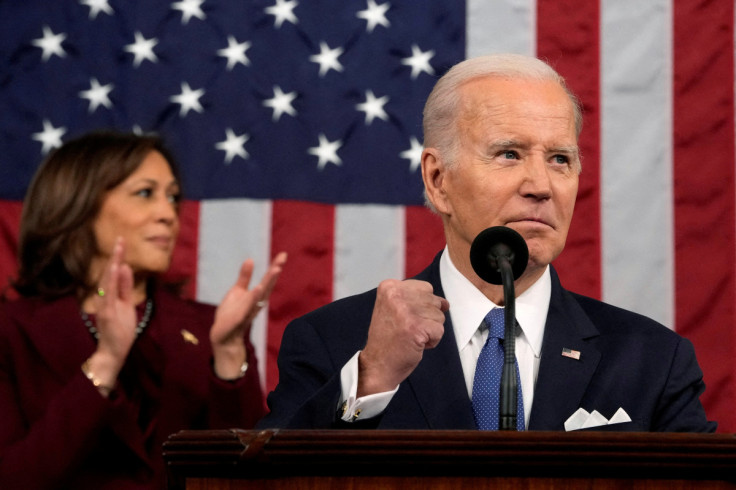
The ongoing dispute over funding for border security is now threatening to force a shutdown of most of the federal government if an impasse is not broken by Saturday.
Concretely, funding for about 70% of the federal government will end after midnight on Friday and, according to a report by The Washington Post, a prolonged one could have "cascading effects on the government and economy."
Tangible examples include two thirds of IRS employees potentially facing furloughs during tax season and more than a million active-duty military service members staying on the job but without pay. The same would be the case for airport security officers, who in the past have called in sick in protest.
The outlet detailed that disagreements over immigration has become a point of contention, presenting an obstacle to the negotiation as the deadline looms large. Funding for the Department of Homeland Security is a salient issue, as congressional Republicans and the White House remain at odds on the amount needed.
GOP negotiators offered the same level of funding as the department got in the last fiscal year plus a small extra for immigration enforcement. However, the White House rejected the proposal, as the level of inflation throughout the past months would mean a budget cut in real terms, putting it at risk of being underfunded.
The talks are still ongoing, with both parties suggesting funding should go to different areas of immigration-related policies. "The White House wanted to preserve funding for detention facilities to house unauthorized migrants, while congressional Republicans were looking to send more money to Border Patrol agents to prevent migrants from crossing into the United States, possibly by shifting funds from detention to border enforcement," The Washington Post reported.
In the meantime, there are government agencies who are already dealing with difficulties stemming from the lack of new funding. Axios reported in February that ICE could run out of funds for detention by July, which would lead authorities to release some 15,000 migrants from facilities near the border and not take in new ones.
In need for $700 million Congress has failed to provide, the agency could cut key parts of its budget aimed at dealing with the influx of migrants.
A factor contributing to the strain is the fact that ICE has been assisting its sister agency, Customs and Border Protection.
Immigrants crossing the border are not the only ones who will see these changes, as those coming in through legal means will also feel the effects of the DHS funding drain.
The Department of Homeland Security continues asking Congress for emergency funds, but current infighting has made it unlikely any breakthrough comes soon.
Republicans this year rejected a bipartisan package that allocated $15 billion to border security policies after Donald Trump, the expected GOP presidential candidate, said it didn't go far enough. Democrats have gone on offense ever since, claiming Republicans don't want to address the issue and use it for political purposes.
In fact, Biden turned his State of the Union address into a platform to demand that Congress pass a series of measures to 'fix the border,' reminding Congress that Republicans would rather stall progress, as evidenced by their actions last month in which they "killed" the initiative.

"If my predecessor is watching, instead of playing politics and pressuring members of Congress to block this bill, join me in telling Congress to pass it," Biden said. "We can do it together. But here's what I will not do: I will not demonize immigrants, saying they are 'poisoning the blood of our country.' I will not separate families."
Figures from a Wall Street Journal poll show that almost 60% of respondents said they would support what was negotiated as a bipartisan package, "with roughly equal percentages of Republicans and Democrats in favor."
© 2024 Latin Times. All rights reserved. Do not reproduce without permission.







